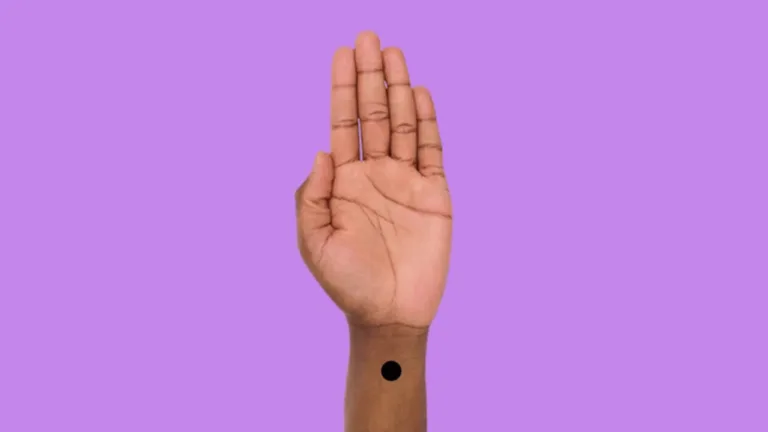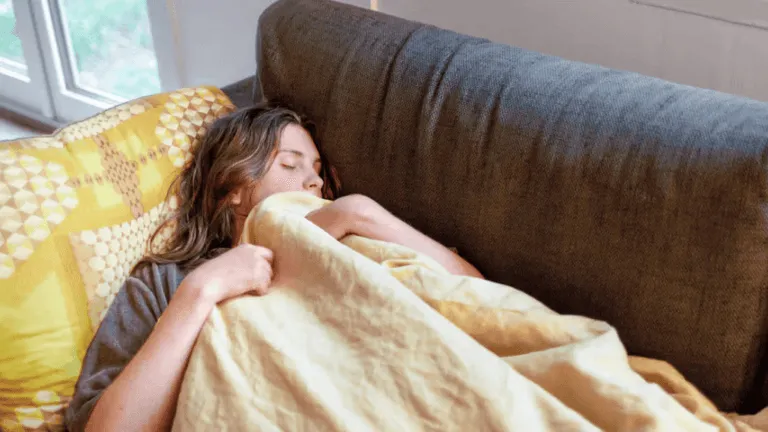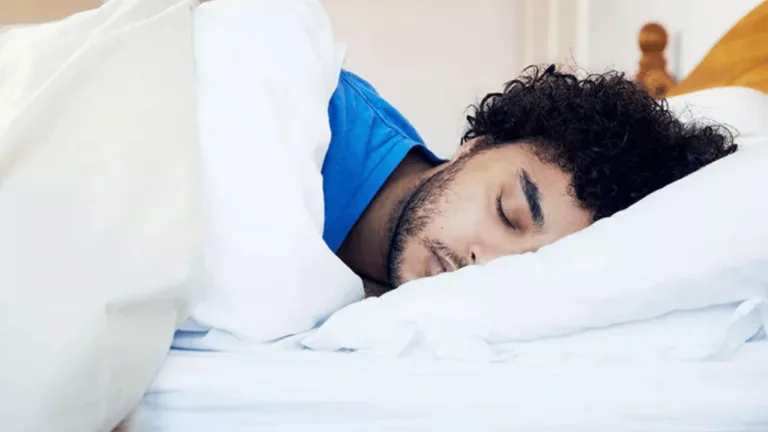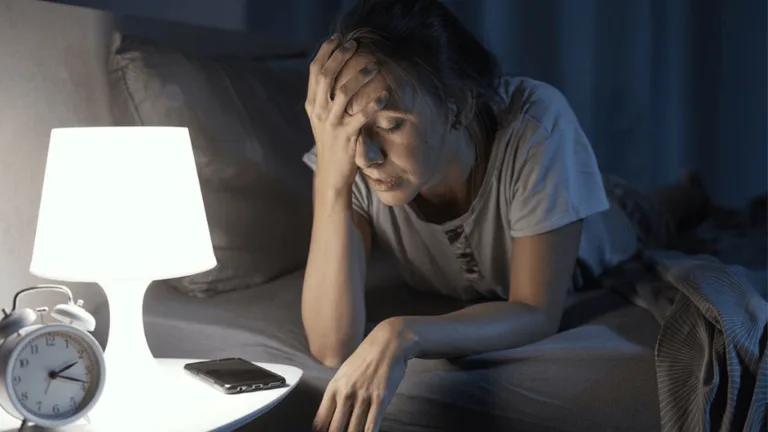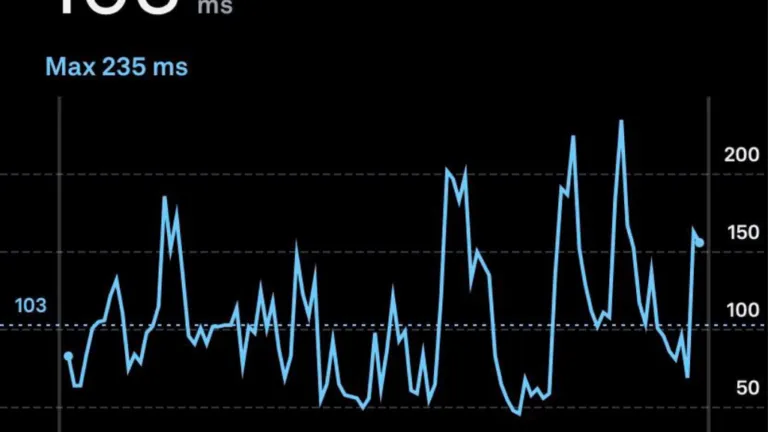In today’s fast world, sleep loss is a big worry. Only 65% of adults in the U.S. get the needed seven hours of sleep each night. Many focus on work and other things over sleep, but studies show sleep loss harms heart health. It can make heart rate and blood pressure go up.
Recent studies have shown how sleep loss affects the heart. They found that heart rate goes up by almost one beat per minute with each day without sleep. Also, blood pressure goes up by about 0.5 millimeters of mercury each day without sleep.
Sleep loss does more than just raise heart rate and blood pressure for a short time. It can lead to serious heart problems like high cholesterol and heart attacks. It can also cause obesity, diabetes, and stroke. Not getting enough sleep to recover can make these heart issues worse over time.
Key Takeaways
- Chronic sleep deprivation can significantly impact cardiovascular health
- Heart rate increases by nearly 1 BPM per day of sleep loss
- Systolic blood pressure rises by about 0.5 mmHg per day during sleep deprivation
- Insufficient sleep recovery may prevent heart rate and blood pressure from returning to baseline
- Sleep deprivation is linked to various heart problems, including high cholesterol, heart attack, and stroke
The Link Between Sleep Deprivation and Cardiovascular Health
Quality sleep is key for a healthy heart. Studies show that not getting enough sleep can lead to heart problems. It’s important to understand how sleep affects our heart rate and arrhythmia risk.
How Sleep Affects Heart Function
When we sleep, our body heals and keeps our heart healthy. Our heart rate slows, blood pressure drops, and breathing gets steadier. But, not getting enough sleep can harm our heart.
Research links sleep loss to higher blood pressure and heart disease risk. Adults sleeping less than five hours a night face a 200% to 300% higher risk of heart disease.
The Dangers of Chronic Sleep Deprivation
Long-term sleep loss can cause many heart issues, including:
- High blood pressure
- High cholesterol
- Heart attack
- Obesity
- Diabetes
- Stroke
Not sleeping enough makes our body stay in “fight or flight” mode. This raises stress and heart strain. Even a one-hour shift in sleep due to daylight saving time can result in a 24% increase in heart attacks over a 3-4 day period.
Sleep loss also leads to inflammation, causing artery hardening. This raises the risk of heart attacks and strokes. Natural sleep remedies and proper sleep habits can help.
Nearly one in three adults sleep less than the recommended seven hours per night, highlighting the widespread prevalence of sleep deprivation and its potential impact on public health.
Sleep Deprivation & Heart Rate’s Impact on Blood Pressure
Sleep quality and duration greatly affect blood pressure. Lack of sleep can lead to high blood pressure and heart risks. Normally, blood pressure drops by 10% during sleep, helping the heart rest.
But, poor sleep can cause blood pressure to rise. This is known as nocturnal wakefulness heart strain.
A study on 20 healthy radiologists showed sleep’s impact. They worked 24 hours with just three hours of sleep. Their blood pressure, heart rate, and strain increased.
The study also found hormonal changes. These changes include higher levels of thyroid hormones and cortisol. This shows sleep deprivation’s quick effect on the heart, but more research is needed.
Nocturnal Dipping and Hypertension Risk
Nocturnal non-dipping means blood pressure doesn’t drop at night. This is a sign of poor sleep and raises hypertension risk. In the U.S., 75 million have high blood pressure.
Globally, 1.28 billion people aged 30-79 have it. Nocturnal non-dipping stops the heart from resting, making these numbers worse.
Elevated Daytime Blood Pressure After Poor Sleep
Poor sleep also raises daytime blood pressure. This is more common in middle-aged adults and those with stressful jobs. It makes high blood pressure harder to control.
Good sleep hygiene is key. Aim for 7-9 hours of sleep each night. This helps manage blood pressure.
Keep a regular sleep schedule and avoid light before bed. A calm sleep environment also helps. Sleep deprivation can be changed through lifestyle and medical help. Quality sleep is vital for heart health.
Sleep Debt and Coronary Heart Disease
Sleep debt is more than just feeling tired. It can lead to serious heart problems, like coronary heart disease. Studies show how sleep affects our heart health.
The CDC says adults need 7 hours of sleep each night. But, 1 in 3 adults don’t get enough. Men who sleep less than 6 hours a night are at higher risk of death.
Inflammation and Atherosclerosis
Sleep debt can cause atherosclerosis, a buildup of plaque in arteries. Insufficient sleep triggers chronic inflammation, which is key in forming plaque. This inflammation, along with other sleep changes, can lead to heart problems.
Increased Risk of Heart Failure
Sleep debt also affects the heart. A study with over 400,000 participants found a link between sleep issues and heart failure. Those sleeping less than six hours a night had a 20% higher risk of heart attack.
“Restorative processes like tissue repair, memory consolidation, and hormone regulation predominantly occur during uninterrupted, consistent nighttime sleep.”
It’s crucial to address sleep debt for heart health. Getting 7 to 8 hours of sleep each night can lower the risk of heart disease. Sleep is essential for a healthy heart.
Does Heart Rate Increase From Sleep Deprivation?
Sleep deprivation can really affect your heart rate and heart health. A study from 2017 looked at university hospital staff. It found that bad sleep quality was linked to higher heart rates and blood pressure.
Normally, your heart rate goes down during deep sleep and goes up when you wake. But, bad sleep can make your heart rate jump up suddenly. This could lead to a condition called sleep deprivation tachycardia.
Abrupt Spikes in Heart Rate After Poor Sleep
Poor sleep can make your heart rate and blood pressure jump up. This might increase your risk of heart attacks. Research shows that sleeping less than six hours a night raises your heart attack risk by 20%.
The stress from not sleeping well can also cause heart palpitations and irregular beats. This is because your body’s stress system gets overactive.
Sleep Deprivation and Irregular Heartbeat Complaints
Those who struggle with sleep often report irregular heartbeats. Older adults who have nightmares are at higher risk too. Sleep loss is linked to a higher chance of having a stroke, as it raises blood pressure.
Not sleeping enough is also tied to obesity. People who sleep less than seven hours a night tend to have a higher BMI or be obese. This affects heart health even more.




